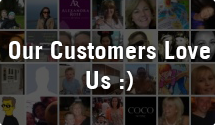
New Study Reinforces The Value Of Yelp For Businesses
A recent study by two UC Berkeley professors found that “Yelp ratings affect both customer flows and the probability of booking a reservation” for restaurants. While this new research has been generating some buzz, the findings are actually quite similar to a study conducted last year by Michael Luca of Harvard Business School.
Both sets of independent research reinforce an important fact: Yelp can be a valuable tool for businesses looking to increase their revenue. Here’s a quick breakdown of the two studies. Michael Anderson and Jeremy Magruder, UC Berkeley:
Both sets of independent research reinforce an important fact: Yelp can be a valuable tool for businesses looking to increase their revenue. Here’s a quick breakdown of the two studies. Michael Anderson and Jeremy Magruder, UC Berkeley:
- This study looked at the effect of positive Yelp ratings on restaurant reservation availability in San Francisco, CA.
- An extra half-star rating causes restaurants to sell out 19 percentage points more frequently (increase from 30% to 49% of the time), and up to 27 percentage points more frequently when alternate information is more scarce (e.g., Yelp is the only source of information about the business).
- “Because Yelp collects and aggregates the experiences of a large number of patrons, Yelp provides a convenient forum to solve asymmetric information problems about the quality of unfamiliar restaurants.” In other words, Yelp is a great source of info when researching a business you’re unfamiliar with.
Michael Luca, Harvard Business School:
- This study looked at the positive correlation between an increase in Yelp ratings and revenue for restaurants in Seattle, WA.
- “[A] one-star increase in Yelp rating leads to a 5-9% increase in revenue...[and] this effect is driven by independent restaurants.”
- One under-reported component of the study: using a statistical analysis, Luca debunks the assertion that “gaming” (fake reviews from business owners) is skewing the data. (Thanks,Review Filter!)
- Yelp's review penetration within the Seattle market far exceeds other sources of restaurant reviews.
When asked about his thoughts on the Berkeley paper, professor Michael Luca had this to say: “That paper does a nice job confirming the results from my work. The findings don’t surprise me, per se, but do demonstrate that the impact of Yelp extends well beyond Seattle (where my study took place), using a similar method but a different measure for demand. Crowdsourced information, and Yelp in particular, is a phenomenon worth studying and I think there is a lot more to learn.”
Although both papers focus on the restaurant industry, it’s important to note that restaurants only make up 21% of the reviewed businesses on Yelp. If there’s ever been any question about the correlation between online word of mouth and consumer purchasing decisions, the findings from these studies should remove any doubt.
For businesses, the best strategy to build a strong reputation and take advantage of a great rating starts in the offline world with great customer service, allowing reviews to build on Yelp organically. This video highlights the story of a few business owners who have had success on this front.
Although both papers focus on the restaurant industry, it’s important to note that restaurants only make up 21% of the reviewed businesses on Yelp. If there’s ever been any question about the correlation between online word of mouth and consumer purchasing decisions, the findings from these studies should remove any doubt.
For businesses, the best strategy to build a strong reputation and take advantage of a great rating starts in the offline world with great customer service, allowing reviews to build on Yelp organically. This video highlights the story of a few business owners who have had success on this front.

